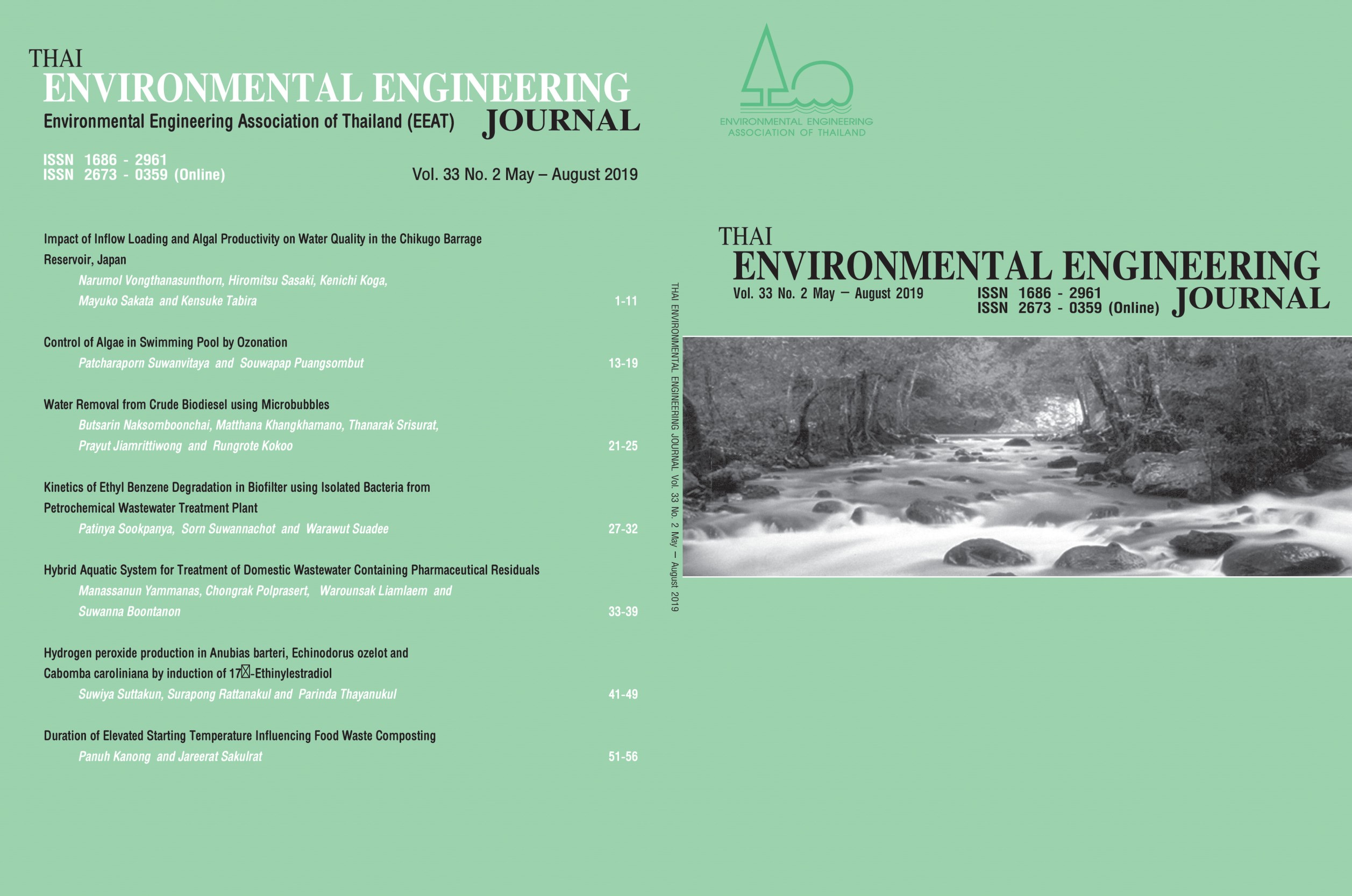Duration of Elevated Starting Temperature Influencing Food Waste Composting
Main Article Content
Abstract
This study aims to improve composting efficiency by elevating starting temperature at mesophilic phase in order to accelerate microbial activities. The controlled starting temperature at 40°C was applied for 12 and 24 hours to a pile of synthetic food waste in the designed composting reactor compared with conventional composting process. Composting parameters such as temperature, mesophilic and thermophilic bacterial quantity were investigated. It was found that controlled starting temperature at 40°C for different duration showed significant enhancement in composting temperature profile, maximum temperature and bacterial quantity compared to the conventional condition. Moreover, the condition of 40°C elevated temperature at duration of 24 hours exhibited the higher maximum temperature and bacteria quantities compared to that of 12 hours. It is concluded that the composting efficiency can be improved by using suitable duration of controlled starting temperature.
Article Details
References
[2] Chvajarernpun, A., Piyapanpong, S. and Thongkaimook, A. 2006. Waste management: Realization of waste to energy and beyond in the meeting of Thailand partnership for development. January, 26. Bangkok.
[3] Xiao, Y., Zeng, G.M., Yang, Z.H., Shi, W.J., Huang, C., Fan, C.Z. and Xu, Z.Y. 2009. Continuous thermophilic composting (CTC) for rapid biodegradation and maturation of organic municipal solid waste. Bioresource Technology. 100: 4807-4813.
[4] Haug, R.T. 1993. The practical handbook of compost engineering. Lewis publisher.
[5] Polprasert, C. 1989. Organic waste recycling. John Wiley & Sons, Chichester. New York.
[6] Tchobanoglous, G., Theisen, H. and Vigil, S. 1993. Integrated solid waste management. McGraw-Hill series in engineering principles and management issues. Singapore.
[7] Mbuligwe, S.E., Kassenga, G.R., Kaseva, Y.E. and Chaggu, E.J. 2002. Potential and constraints of composting domestic solid waste in developing countries: findings from a pilot study in Dares Salaam, Tanzania. Resources, Conservation and Recycling. 36: 45-59.


